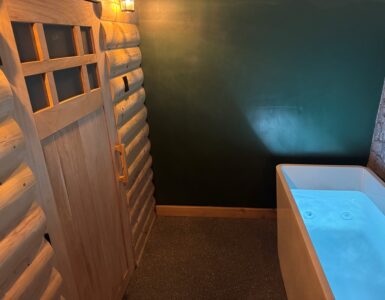Give your family the comfort of knowing you are prepared in the event of a large scale natural disaster!
Eric Fairbanks with Utah Disaster Kleenup says one of the most important items any family should have is a 72-hour kit.
Electrical, Water, transportation and other vital systems can be disrupted for several days or more after a large-scale disaster. Emergency response agencies will likely be overwhelmed and unable to provide you with immediate assistance…which gives you reason to prepare.
One of the least expensive and most important items any home or family can prepare is a 72-hour kit.
Consider the following when preparing your 72-hour kits:
1. Each individual in your family should have their very own 72-hour kit. Items that may be included in each kit can be specific to the individual. Consider these items:
· Medications, a list of prescriptions, copies of medical insurance cards, doctors names and contact information
· Medical consent forms for dependents
· First-aid kit and handbook
· Spare eyeglasses, personal hygiene supplies, and sturdy shoes
· Bottled water
· Whistle (alert rescuers to your location)
· Emergency cash
· Personal identification
· List of emergency contact phone numbers
· Snack foods high in calories
· Emergency lighting: light sticks and/or a working flashlight with extra batteries and light bulbs (hand-powered flashlights are also available)
· Comfort items such as games, crayons, writing material and teddy bears
2. Not only should you consider individual kits, but also household or family kits. Consider storing this kit inside a large, portable watertight container in a safe, accessible location. Pack at least 3-5 day supply of these items:
· Drinking water (minimum 1 gallon per person per day)
· First-aid supplies, medications and essential hygiene items such as soap, toothpaste and toilet paper.
· Emergency lighting: light sticks and/or a working flashlight with extra batteries and light bulbs (hand-powered flashlights are also available)
· A hand-cranked or battery-operated radio and spare batteries
· Canned and packaged foods and cooking utensils, including a manual can opener
· Items to protect you from the elements such as warm clothing, sturdy shoes, extra socks, blankets and perhaps even a tent
· Heavy duty plastic bags for waste and to serve other uses, such as tarps and rain ponchos
· Work gloves and protective goggles
· Pet food and pet restraints
· Copies of vital documents, such as insurance policies and personal identification
Remember, this may seem overwhelming, but it doesn’t have to be. You have to start somewhere, and if you can’t get it all at once, start by a piece at time and keep working at it. You’ll be glad you did.














Add comment